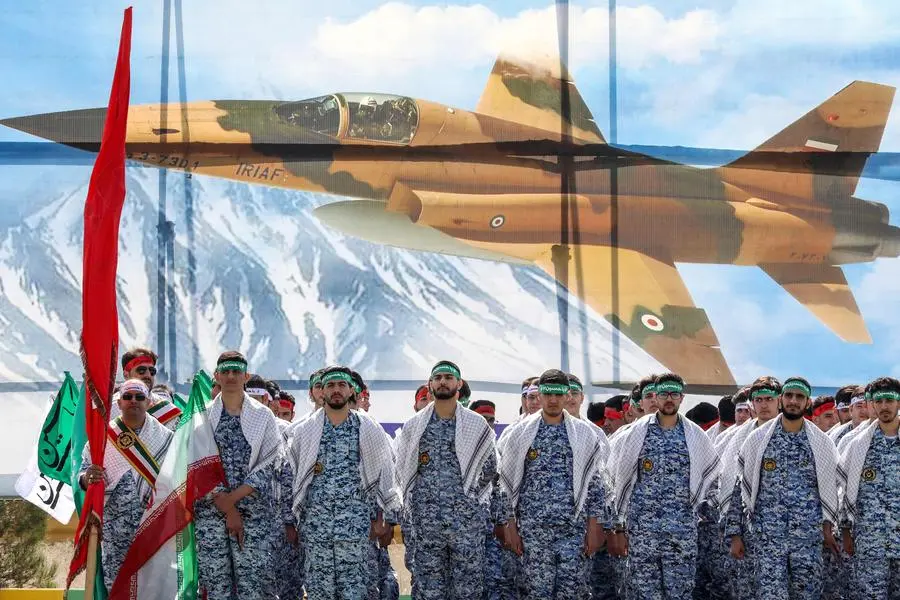PHOTO
A senior Revolutionary Guards general threatened on Thursday to target Israel's "nuclear facilities" if it strikes Iranian atomic sites, state media reported, anticipating retaliation for Tehran's unprecedented weekend attack.
Israel's military chief has vowed a response to the Iranian aerial attack, which was mostly intercepted, while world leaders have urged de-escalation.
Tehran's first direct attack on Israel, launched late Saturday, was in retaliation for an April 1 air strike on the Iranian consulate in Damascus that killed seven members of the Islamic Revolutionary Guard Corps, including two generals.
Israeli officials have not said when or where the country would retaliate, but Ahmad Haghtalab, the Guards' head of nuclear protection and security, said Iran would "definitely" reciprocate any attack on nuclear sites.
"If the Zionist regime (Israel) wants to take action against our nuclear centres and facilities, it will definitely and surely face our reaction," the official news agency IRNA quoted Haghtalab as saying.
"For the counterattack, the nuclear facilities of the (Israeli) regime will be targeted and operated upon with advanced weaponry."
His warning came after Prime Minister Benjamin Netanyahu said Israel reserves "the right to protect itself" following the Iranian attack with hundreds of drones and missiles.
Haghtalab said "the threat" of an Israeli attack on Iran's nuclear facilities could lead Tehran "to revise and deviate from the declared nuclear policies and considerations", without elaborating.
The Islamic republic, which has always insisted its nuclear programme is peaceful and denies seeking an atomic bomb, has accused arch foe Israel of sabotage attacks on its facilities and assassinations of nuclear scientists in recent years.
According to Haghtalab, Iran has "identified" Israeli nuclear centres and holds "necessary information of all targets".
Israel is widely known to have nuclear weapons but has never admitted so.
"Hands are on the trigger to fire powerful missiles for the total destruction of determined targets," the Iranian general said.
On Monday, the head of the International Atomic Energy Agency, Rafael Grossi, said Iran had closed its nuclear facilities "for security reasons" on the day of its attack on Israel.
Amirali Hajizadeh, commander of the Revolutionary Guards' aerospace unit that led the attack on Israel, said on Thursday that Iran had only used "old weapons and minimal power" for it.
"At this stage, we have not used" ballistic missiles, he said, arguing Iran has "overcome the maximum capacity" of Israel and its allies "with minimal power".





















